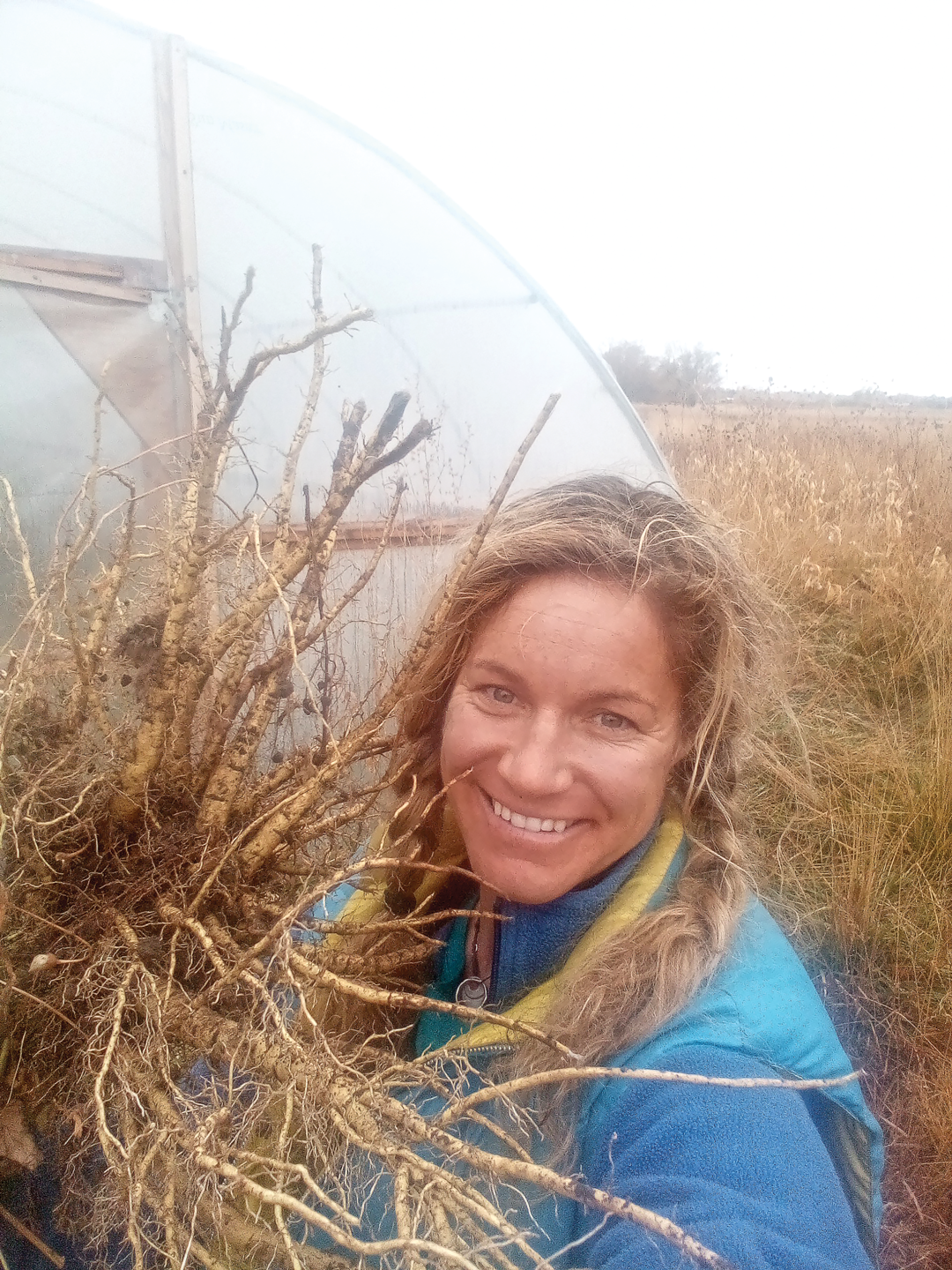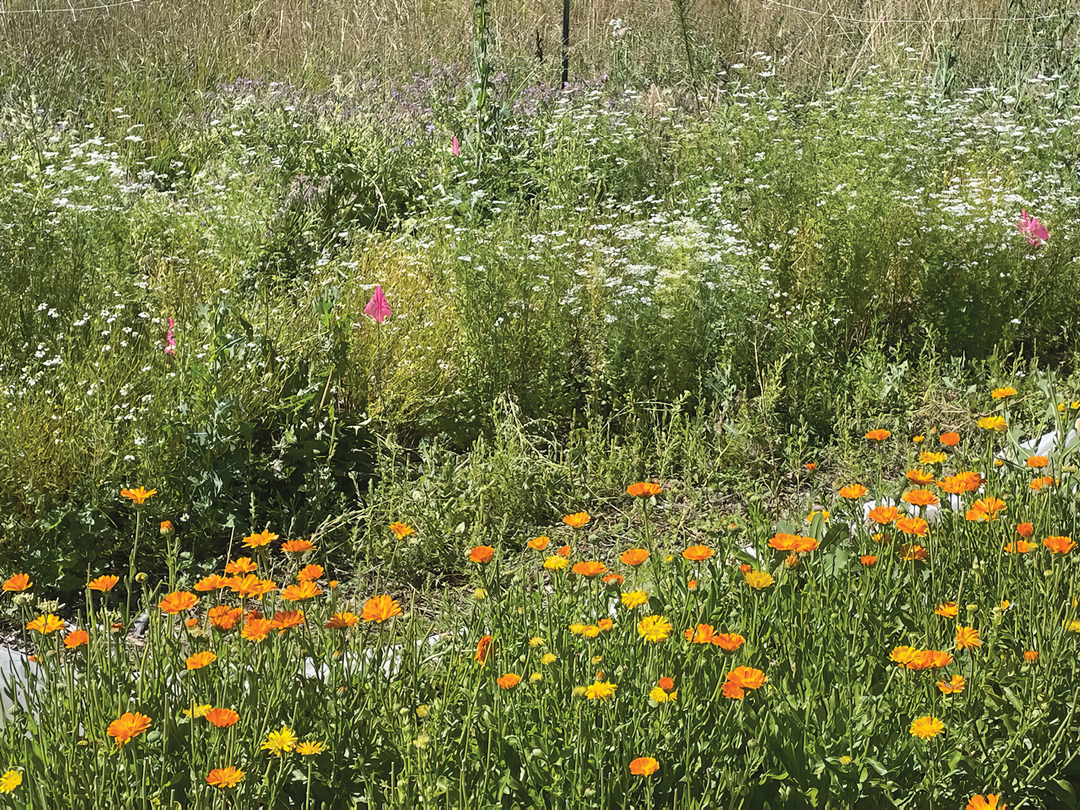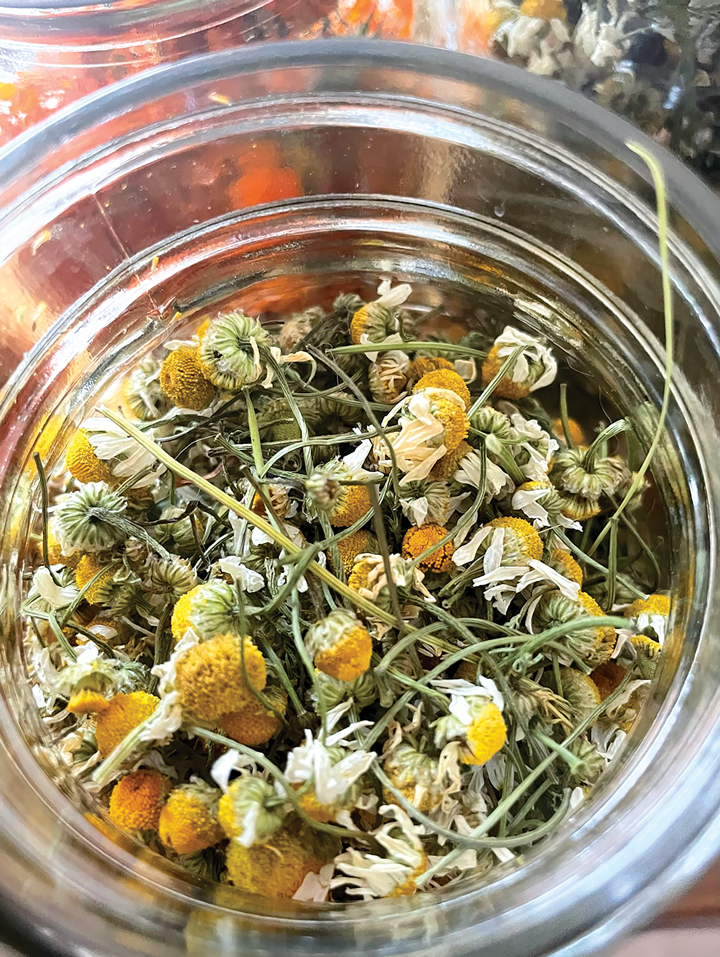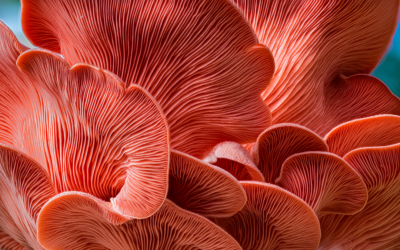Amy Kousch’s grandmother was a musical genius who tuned Woody Guthrie’s piano. She was a mathematician, too, among the first group of women to graduate from Brown University. Even with four children, she had a robust social life.
But Kousch, of Fort Collins, didn’t know her like that. As a child, she mostly knew her as the 58-year-old woman with Alzheimer’s, someone her mother had to care for.
“It was my mom alone in the trenches watching her mom lose her mind,” Kousch says.
Kousch, 43, now recognizes the tragedy and trauma of her grandmother’s diagnosis. That, and her own chronic migraines, drives much of her work today.

Amy Kousch, owner of Mineral Roots Nursery
Healing herbs grown sustainably
Kousch is the founder and head grower at Mineral Roots Nursery and Center for Soil Studies, a nursery in Fort Collins with a focus on biodiversity, soil health and plant vigor to produce food and medicinal crops. She has been farming for about two decades and received both her bachelor’s degree in natural resources and master’s degree in agriculture sciences from Colorado State University. She’s currently pursuing a doctoral degree in plant sciences at the University of Wyoming.
Through Mineral Roots, formerly known as Berchta Botanicals, Kousch is committed to restoring biodiverse ecological systems. This includes working to rebuild the green water cycle, she says, a process in which water is stored in soil and biomass, eventually releasing back into the atmosphere through leaves. The process improves soil health while producing a diverse crop of native, wild plants.
All of Kousch’s nursery stock is grown with regeneration in mind; the methods she employs to grow and harvest her plants are intended to nurture and restore soil and ecosystem health. Her crops are grown slowly, with intention and attention given to each individual plant, which typically involves using very fertile soil with lots of organic matter.
“That can’t be mechanized or automated,” she says.
This level of care, according to Kousch, contributes to the plants’ hardiness and vigor. Mineral Roots also takes organic farming to the next level in that Kousch does not use any synthetic herbicides, pesticides, fungicides or synthetic fertilizers.
That’s what sets her nursery apart, she says. Her standard is this: She doesn’t use anything that would have caused her son any harm had he accidentally put it in his mouth when he was younger. That goes above and beyond United States Department of Agriculture organic regulations, she says.
“I don’t compromise a centimeter on those things,” Kousch says. “Everything is clean and safe for birds, bees, babies and soil.”
Laura Cascardi, herbalist and owner of Equinox Center of Herbal Studies in Fort Collins, applauds Kousch’s skills, calling her one of the most amazing horticulturists she’s ever met. Kousch’s plants are incredibly vibrant, Cascardi says, almost glowing.
“Her methods are beyond organic,” Cascardi says. “You can tell as soon as you see them.”
In herbalism, Cascardi says she often encounters plants that are grown ornamentally and are bred to not express traits such as leaf color or shape. Many plants and herbs you buy at the grocery store are also genetically modified, she says, and those modifications may change the medicinal qualities of herbs and other plants. Kousch harvests her seeds from wild plants and grows them, Cascardi says, which makes them better for medicinal uses.

Sharing the wisdom
Kousch supplies medicinal herbs for Cascardi and teaches a series of foundational and advanced classes at Equinox. Her classes focus on cultivating soil health, growing and harvesting plants and making compost, Cascardi says. Kousch also teaches her own hands-on course through Mineral Roots, which she calls the Grower’s School, and Cascardi often directs people there.
“If someone wants to learn to grow plants, she’s the person they should be learning from in this region,” Cascardi says. “I’ve seen her do things and create soil and garden beds that are just off the charts.”
Kousch’s week-long Grower’s School course is an immersive combination of classroom time and “farm-based experiential learning, doing, growing and research,” according to the website. It’s designed to help students grow medicinal plants, improve soil health and restore local ecology. The first session runs from June 24-30 with morning and night options, and Kousch says she will host another Grower’s School program from Aug. 5-11. She’s also offering weekend and weeknight workshops throughout the summer, which will be updated on the Mineral Roots website.
In her classes, Kousch helps students understand what they’re doing and encourages them to ask why they’re doing it. That includes the basics—like why they’d use drip irrigation instead of overhead watering in a particular part of the field—and the more complicated questions, like how growers can thrive in the arid west when drought is imminent.
“There’s nothing I love more than having a group of people out digging in the soil and talking about what we’re growing,” she says.

Potent plant medicine
Given her family history and passion for plants that heal, Kousch is always working to figure out how to grow more potent medicinal plants that thrive in Northern Colorado’s climate.
There is no cure yet for Alzheimer’s, and modern science doesn’t fully understand what causes the disease. But some research shows a link between inflammation and cognitive decline, according to Harvard Medicine.
A 2021 study published in the journal Biomolecules shows that more than 200 promising drug candidates have failed clinical trials in the last decade. With that failure, herbal remedies and medicinal plants, like the ones Kousch grows, are gaining traction as complementary and alternative interventions.
“I guess I’m not satisfied with the collective answer that there is no cure,” Kousch says. “I know the canon of research on neurodegenerative disease is vast and wide, and there are brilliant minds working on it. What I know from my little silo is that I can grow something that helps alleviate inflammation, so that’s what I’m going to do.”
Growing Medicinal Plants at Home
For folks who are curious about growing their own medicinal herbs or simply incorporating them into their diet as teas or tinctures, Kousch says these are her top five recommendations:
Yarrow
It’s drought tolerant and provides habitat for beneficial insects. Yarrow staunches bleeding and has an antimicrobial profile.
Mountain Bee Balm
It’s beautiful and drought tolerant, also offering habitat for pollinators. Medicinally, it serves as an antiviral and offers respiratory support.
Calendula
This annual plant has rich, orange blooms and grows prolifically. It has soothing, anti-inflammatory properties.
Marshmallow
Marshmallow roots help to heal the epithelial lining and support the gut biome. It also provides respiratory support.
Nettle
This plant requires a bit more work to establish, but it offers dense nutrients and can be used as a compost booster.
If you need help planning and planting, Kousch also provides ecologically focused garden consultations and design services for local homes and businesses.
Where to Buy
Folks can buy Kousch’s plants on the Mineral Roots website from the medicinal collections, herbaceous perennials collections, farm and restoration collections, biodiversity collections, soil building collections and more. A variety of starter trays and individual plant types are also available for purchase throughout the growing season.
Kousch has a booth at the Larimer County Farmers’ Market (200 W. Oak Street, Fort Collins), which is held from 9 a.m.-1 p.m. every Saturday through October. Her plants are also available for purchase at the Equinox Center of Herbal Studies, Golden Poppy Herbal Apothecary and The Hawthorn Tree in Cheyenne, Wyo.
Take a class from Kousch
To learn more about Mineral Roots Nursery or sign up for the Grower’s School, visit mineralroots.com.







